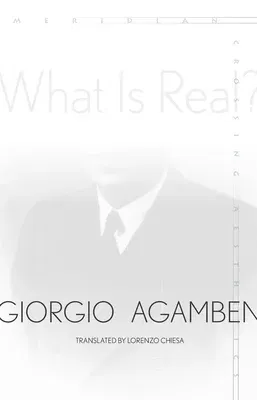Giorgio Agamben
(Author)What Is Real?Paperback, 13 November 2018

Qty
1
Turbo
Ships in 2 - 3 days
Only 3 left
Free Delivery
Cash on Delivery
15 Days
Free Returns
Secure Checkout

Part of Series
Meridian: Crossing Aesthetics
Print Length
88 pages
Language
English
Publisher
Stanford University Press
Date Published
13 Nov 2018
ISBN-10
150360621X
ISBN-13
9781503606210
Description
Product Details
Author:
Book Format:
Paperback
Country of Origin:
US
Date Published:
13 November 2018
Dimensions:
17.53 x
11.18 x
1.27 cm
ISBN-10:
150360621X
ISBN-13:
9781503606210
Language:
English
Pages:
88
Publisher:
Weight:
90.72 gm